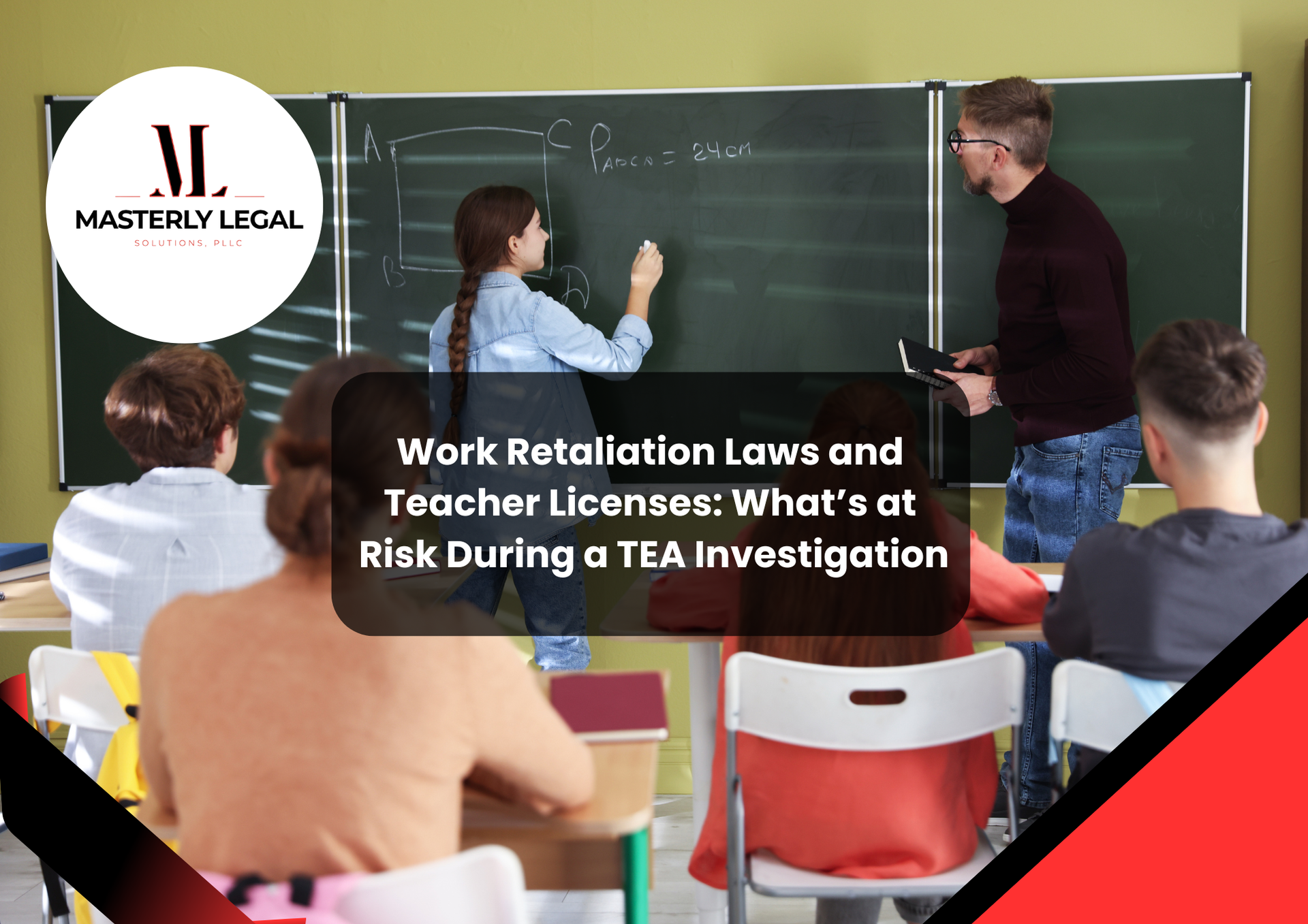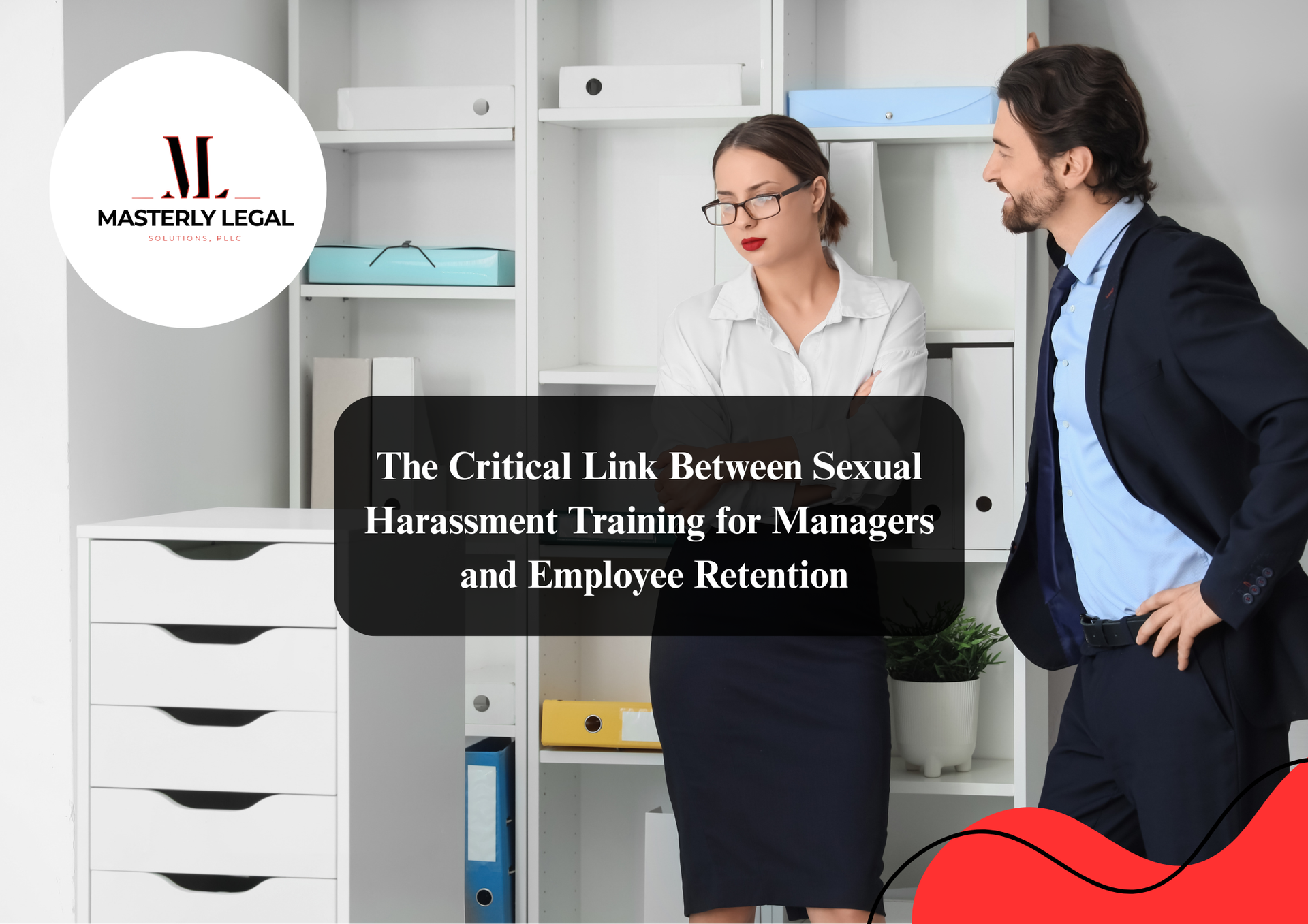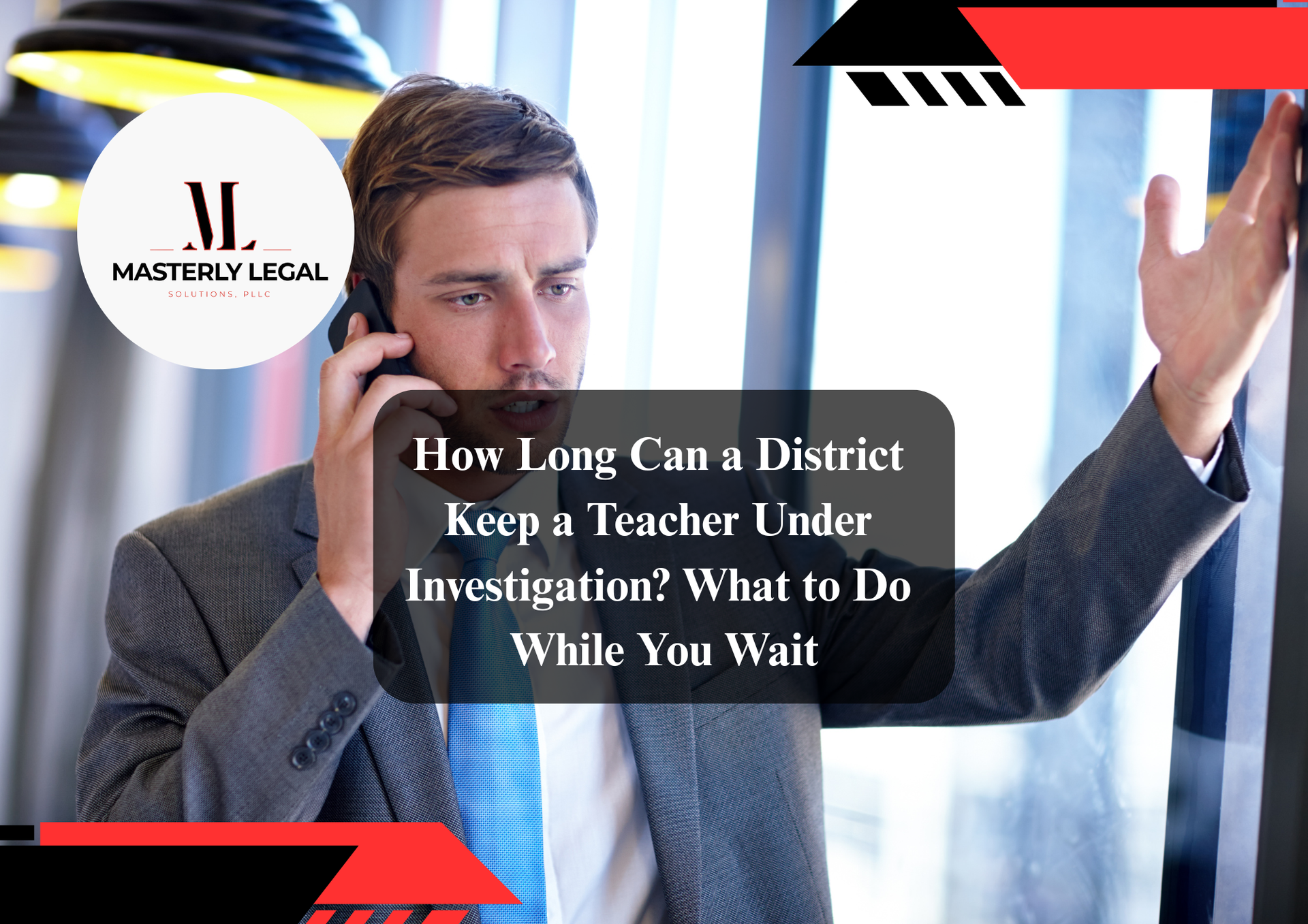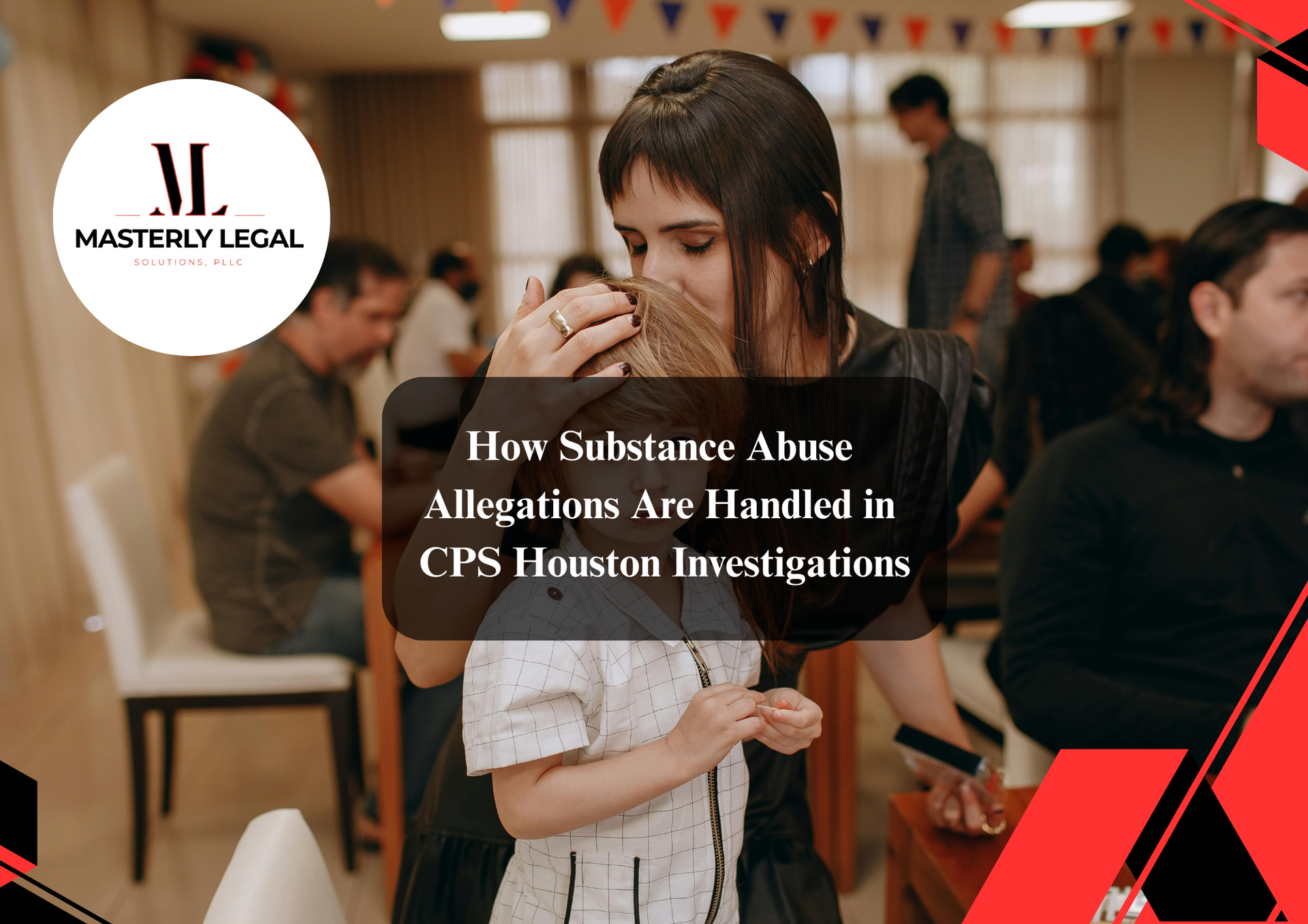Career on the Line: How School District Complaints Become TEA Cases That End Teaching Careers
The Fragile Nature of a Teaching Career
Teaching is often viewed as a secure profession, but for many educators, a single complaint filed with a school district can escalate into a Texas Education Agency (TEA) case. Once the TEA begins investigating, an educator’s license, reputation, and entire career may be on the line. Even educators in Florida, where a florida teacher under investigation faces state-specific processes, encounter similar high-stakes outcomes.
Complaints may arise from parents, administrators, or even fellow faculty members, and the impact can be devastating. What begins as a minor allegation can evolve into formal disciplinary actions under state and federal law. Understanding how these complaints become full-blown cases is critical for teachers to protect their legal rights and preserve their livelihoods.
How School District Complaints Begin
The Role of School Districts in the Complaint Process
Most school districts have internal mechanisms for receiving complaints. These may involve allegations of misconduct, violations of school’s code, or accusations of inappropriate behavior with students. Once a complaint is received, the district must determine whether it falls within state or federal law, such as Title IX laws dealing with sexual harassment or sexual assault.
When Complaints Trigger State Intervention
Not all complaints rise to the level of state involvement. However, if a teacher is accused of sexual misconduct, domestic violence, or being accused of sexual assault, the complaint is often forwarded to the TEA. At this stage, educators may also face parallel investigations under Title IX proceedings, especially if the alleged conduct affects a school’s education program or its compliance with federal funding requirements.
Title IX and Its Expanding Reach
What is Title IX?
Title IX is a provision of the Education Amendments of 1972 that prohibits gender discrimination in any education program receiving federal financial assistance. While many associate it with athletics, Title IX extends far beyond sports. It governs how educational institutions handle sexual assault, sexual harassment, and other forms of sexual misconduct.
Title IX Allegations Against Teachers
When teachers face Title IX allegations, the stakes are even higher. A complaint may be filed by a student, parent, or colleague, alleging violations of the educational institution’s code of conduct. Teachers become Title IX defendants in formal Title IX cases, often subject to the same investigative process and disciplinary procedures as students.
The Investigation Process
The Role of the Title IX Coordinator
Every educational institution must designate a Title IX coordinator. This individual oversees the handling of complaints and ensures compliance with federal law. Teachers may first be contacted by this coordinator when a Title IX complaint is filed.
The Title IX Investigator’s Job
A Title IX investigator conducts interviews, reviews evidence, and prepares reports. For educators, this stage is critical. The investigator may determine whether the teacher should be suspended during the investigation process. Many teachers are surprised to learn that they can be removed from classrooms before a final decision is made.
Risks of Being Found Responsible
What “Found Responsible” Means
In the world of Title IX proceedings, being found responsible can mean termination, loss of licensure, and even being reported as a sex offender. The outcome often extends beyond the school—it may impact the teacher’s ability to find work in other educational institutions or even outside the field of education.
Overlapping Criminal Charges
Sometimes, allegations escalate into criminal charges. For instance, when a teacher is accused of sexual assault, police may initiate their own case. Even if the teacher is acquitted in criminal court, the school district and TEA may still enforce other disciplinary procedures, relying on a lower burden of proof than the criminal justice system.
Title IX Cases in Schools and Universities
Faculty and Staff Members Under Scrutiny
While represented students are often central to Title IX cases, teachers and faculty and staff members also face scrutiny. Allegations may involve sexual violence, inappropriate relationships, or unlawful retaliation against students who file complaints.
When the University Fails
If a university fails to properly investigate or mishandles Title IX cases, educators and students may seek remedies through the Education’s Office of Civil Rights. In some cases, victims claim the institution violated their student’s rights by not following proper disciplinary procedures or ignoring process rights guaranteed under the law.
Navigating the Title IX Process as a Teacher
Due Process and Teachers’ Rights
Teachers facing Title IX allegations must be given due process. This means fair notice, an opportunity to respond, and the right to gather evidence. Unfortunately, the investigative process often feels biased, leaving teachers uncertain about whether their student’s rights and their own rights are truly being upheld.
Title IX Hearings
Many Title IX hearings resemble courtroom proceedings. Teachers may be questioned about their conduct, credibility, and history. Without an experienced Title IX attorney, educators risk being overwhelmed by the complexity of Title IX laws and the formality of related processes.
Why Teachers Need Legal Representation
The Role of a Title IX Defense Lawyer
An experienced Title IX defense lawyer or Title IX defense attorney can make the difference between dismissal and career-ending disciplinary actions. Lawyers understand the nuances of Title IX claims, informal resolution options, and how to ensure a teacher’s process rights are protected.
How Law Firms Represent Clients
A law firm that focuses on education and civil rights law will represent clients accused in Title IX investigations with skill and precision. Their role is not only to defend the teacher but to act as an aggressive advocate in hearings and negotiations.
Common Misunderstandings About Title IX
Not Just About Students
A frequent misconception is that Title IX applies only to student defendants or the accused student in a college setting. In reality, Title IX cases extend to teachers and faculty members, especially if the alleged conduct impacts the school’s education program.
Informal Resolution vs. Restorative Justice
Some cases may be resolved through informal resolution processes, but these do not always favor teachers. Restorative justice options are limited, and in many cases, the outcome is still a record of disciplinary actions that can follow a teacher for more than a year, even if they are not ultimately found guilty.
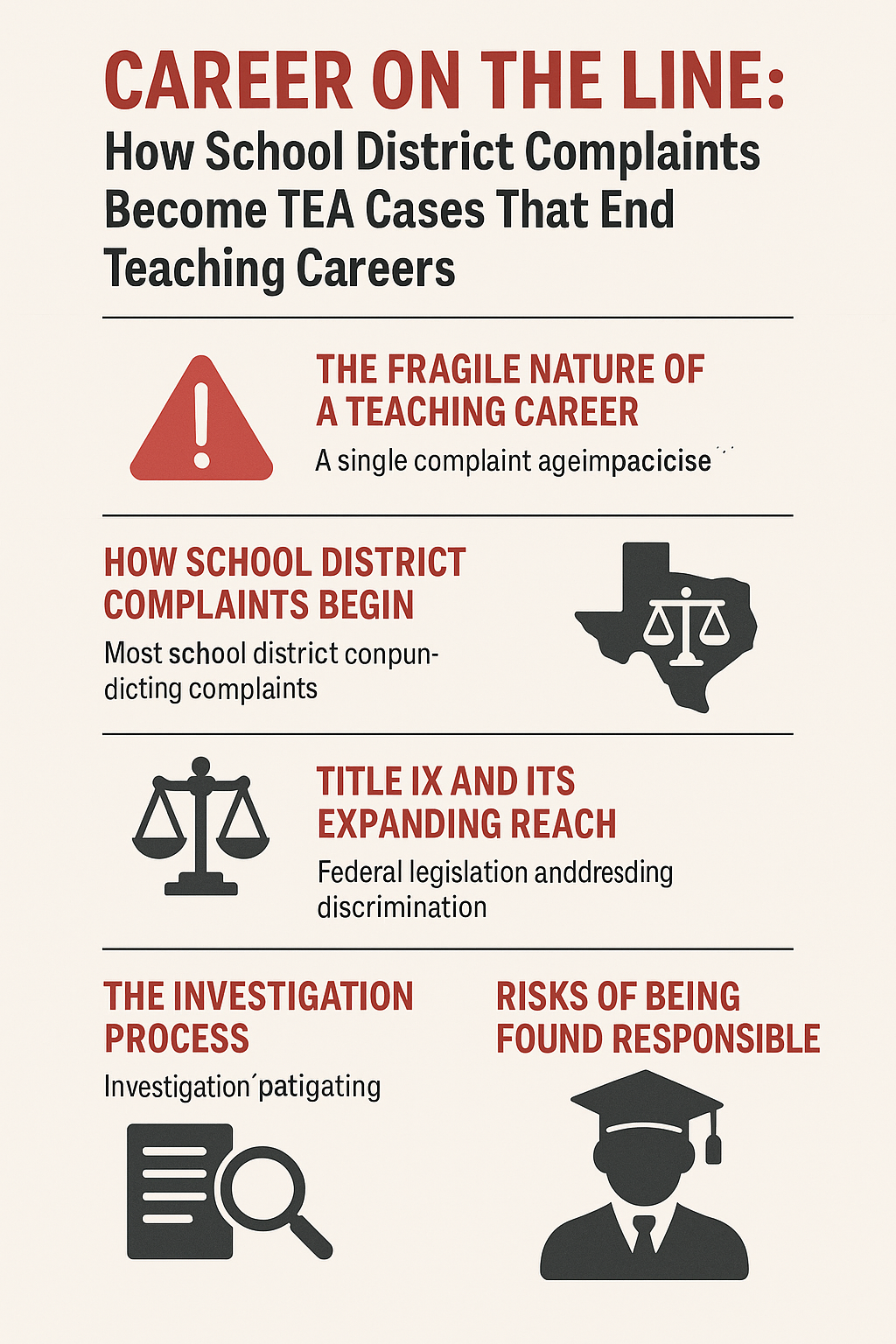
Protecting Your Future
The Cost of Being Unprepared
Teachers who fail to take allegations seriously often face final decisions that end their careers. Once disciplinary procedures are finalized, it becomes nearly impossible to reverse them.
The Importance of Experienced Title IX Attorneys
Working with an experienced Title IX attorney ensures that teachers are not blindsided by the system. Whether accused of sexual harassment, sexual assault, or other sexual misconduct, having Title IX lawyers who understand process rights is the best defense.
High-Stakes Investigations: From Florida Classrooms to Texas Hearings
When a florida teacher under investigation faces allegations of sexual assault, the process mirrors the seriousness seen in Texas with TEA cases. Teachers may be immediately removed from classrooms while disciplinary actions are pending, and the stigma of being accused of sexual assault often lingers even if the educator is later cleared.
Unlike an accused student, who may have certain protections under campus policies, teachers must navigate both professional licensing rules and Title IX laws. Without skilled IX lawyers, educators risk losing their process rights, making it harder to defend themselves effectively.
If a teacher is ultimately found guilty of sexual violence, the consequences extend beyond termination. They may face permanent damage to their reputation, restrictions on working with minors, and even reporting as a sex offender. These outcomes underscore the importance of strong legal advocacy from the very start of the investigative process.
When Title IX Violations Extend Beyond Public Schools
Even educators working in a private school are not immune from scrutiny. If the school receives federal funding, it must comply with Title IX laws, just like public institutions. This means a teacher accused of a Title IX violation could face the same investigative hurdles, including a formal inquiry, hearings, and possible disciplinary actions. Parents and administrators in private schools often underestimate how serious these complaints can become, but the TEA and other governing bodies take them just as seriously as complaints in public school districts. For teachers, this means their career could be placed in jeopardy regardless of the setting in which they teach.
The Critical Role of a Title IX Defense Attorney
A Title IX defense attorney is more than just legal counsel—they are the frontline protector of your career when serious allegations surface. Whether a teacher or an accused student is facing claims of sexual assault, sexual violence, or other misconduct tied to a school's education program, the guidance of an attorney is essential. These cases are complex, often involving overlapping school procedures, TEA investigations, and even potential criminal charges. An experienced attorney ensures that your process rights and due process are not overlooked while building a strong defense against biased hearings or improper findings.
Contact Masterly Legal Solutions for Immediate Support
If you are a teacher facing a Title IX investigation, a TEA complaint, or other disciplinary actions, your career, reputation, and livelihood may be at stake. At Masterly Legal Solutions, we understand how school districts, the TEA, and educational institutions handle these matters, and we know how to fight back. Our attorneys are skilled in defending educators accused of sexual assault, harassment, or misconduct, and we work tirelessly to protect student’s rights and faculty rights alike.
Contact us today at (972) 236-5051 for a free consultation. After reviewing your case and outlining your choices, we will start developing a solid defense plan that is specific to your circumstances. Don’t wait until a final decision has been made—by then, it may be too late. Let our team step in early, defend your rights, and safeguard your career.
Notice: This post is not legal advice; it is merely informational in nature. Since each case is different, you should speak with an experienced lawyer about your particular circumstances.
Looking for Legal & Business Solutions? Contact Us Now
Fill in the form or call us to set up a meeting

